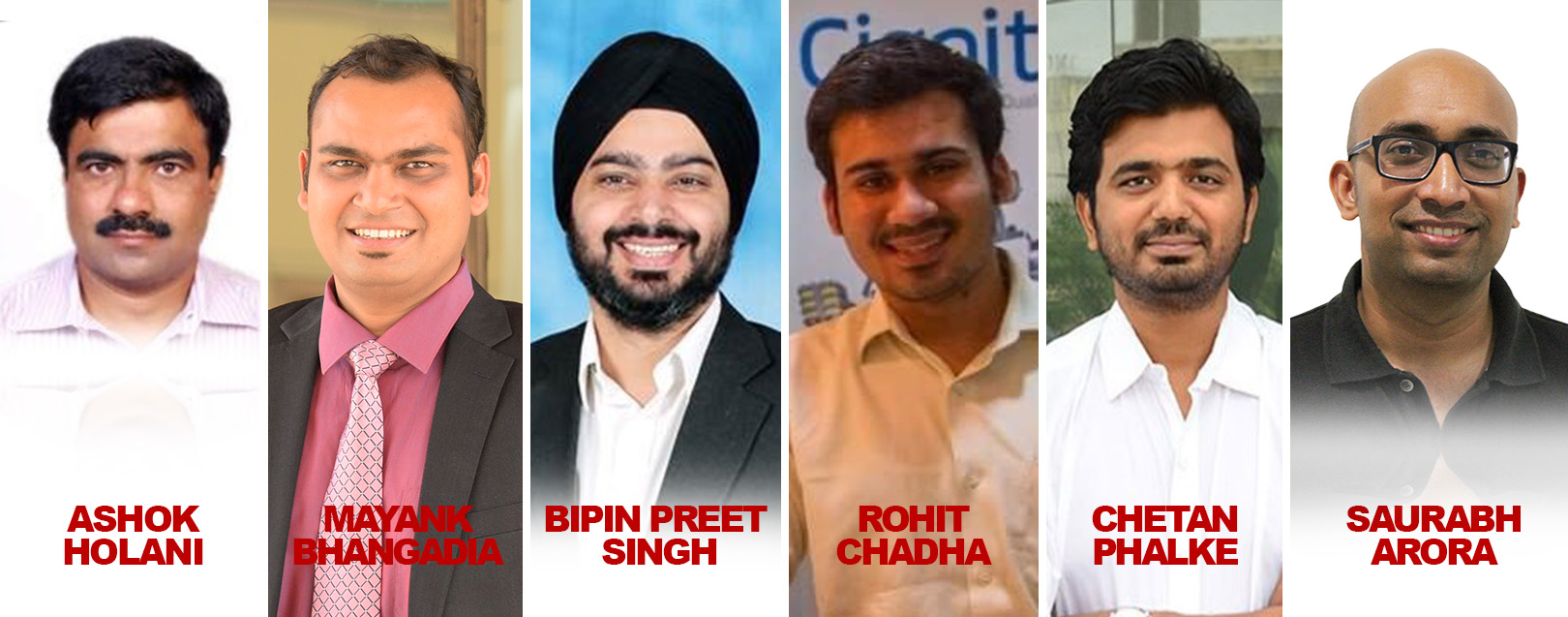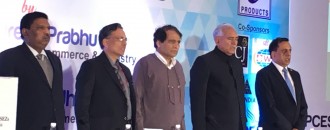
Six Indian startups share their Budget wish list
Sneha Gilada
With 'startups' and 'venture capitalism' having become buzz words in the business environment, the government jumped onto the band wagon in 2016, and initiated a slew of measures to boost the startup ecosystem in India. One year ago, in January 2016, The 'Startup India' initiative was launched with the intent of incentivising startups through tax exemptions and funding support. A three-year tax holiday for newly founded businesses was one of the most cheered moves of Budget 2016-17.
India's fiery entrepreneurial spirit has made the country the third largest breeding ground for startups in the world, after USA and England. With Budget 2017-18 fast approaching, stakeholders anticipate many more tax and non-tax sops to make the business environment more friendly for incubations.
Minister of Commerce and Industry, Nirmala Sitharaman has also suggested that the 100% tax exemption for startups be extended to a period of seven years. The recent demonetisation has worked in favour of many fintech startups like Paytm. On this front, its popular demand that pushedtowards a less-cash India continued in the form of reduced transaction tax on digital payments.
Seamless entry and exit for entrepreneurs, improved funding mechanisms, provision of speedy internet in public spaces, facilitation of cross-border movement of money, relaxation of labour laws, better infrastructure and more incubation centres are some measures that could go a long way in making India a dream launch-pad for startups.
We, at The Dollar Business, have spoken to entrepreneurs from across the country regarding their expectations from the budget. Following are opinions and thoughts, as expressed by startups, in anticipation of Budget 2017-18.
Saurabh Arora, Founder & CEO, Lybrate:
Commenting on extension of tax holiday beyond three years, Saurabh said, "In light of hardly any startup becoming profitable in the first three years of inception, the government must increase the time frame to seven years. This would leave startups with more cash in hand to reinvest in their businesses."
"On capital gains, profit is tax free if an investor remains invested in a listed company for a year. This should be allowed in start-ups too, which are unlisted, with a rider to stay invested for a minimum of 3-5 years," he said, with regard to making business environment conducive to startups.
"With regard to corporate tax, differential tax for start-ups must be considered. When a start-up begins to make profit, they can be charged 20% tax as opposed to normal 30%. Secondly, the carry forward of losses for set off should be allowed for more than 8 years," he added.
Particularly with regard to the online healthcare sector, Saurabh said that tax rebate on healthcare expenses should be extended to all tax payers, instead of just the salaried class. The current bracket of Rs. 1250 in this regard must be increased to Rs. 5000. This would make more people spend on healthcare, give an impetus to the health-tech startup sector and result in more cash revenue generation for the government. The government can discuss the nuances with the players in the sector to conclude a framework."
"Also, payments by patients to doctors beyond a limit must be mandatorily digital. This would not only bring transparency, but also push the digital framework that the government has been rooting for," he added.
Bipin Preet Singh, CEO and Founder, MobiKwik:
Showing immense faith in India's ability to make it to the third largest economy (after US and China) by 2030, Bipin has put out an exhaustive wish list for the Union Budget:
- Upgradation of digital infrastructure, which will encourage non-cash payments
- Improvement in digital literacy and high-speed internet access
- Corporate tax rebate for startups in the digital payments sector, which has hitherto been flat 35%
- Sops for fintech companies in data protection
- Momentum in government schemes such as Make in India, Digital India, Start-Up India, Skill India, and Stand Up India.
- Rural areas, home to 65% of India's population must be well connected with good roads.
- State-of-the-art airports and seaports
- Making India tax-compliant, since barely 3% of the population currently pays tax.
Pointing out that the growth of new generation mobile wallets is critical to the economy, Bipin said that only 10% of the trillion dollar amount transacted annually is via digital platforms. To increase the share of online money transactions, a special focus on fintech startups in the Budget is warranted.
Ashok Holani, Founder and CEO, Genesis Technologies:
"Three years is generally a good time for a startup to stand on its feet. 100% Tax exemption beyond that may not be a right step. The government should consider some other sops instead," Ashok said, in response to need for extension of tax holiday.
"Tax exemptions in the initial year are important. Easy and low cost finance would also bring good returns for startups. Among other things, specifically for businesses in the software industry, depreciation on electronic equipment like computers, mobiles etc could be increased. Also, expenses on employee welfare should be encouraged by additional tax benefits," he added.
"Demonetization and GST will impact this year's budget significantly. Companies dealing with electronic payments should be encouraged by taxing cash transactions. Lowering tax rates and increasing tax avoidance penalty will help create a positive and enabling environment for the industry."
Chetan Phalke, Founder, Alpha Invesco Research Services Limited:
"Start-ups need innovative minds and a conducive environment to take risks without the fear of failure. The government should focus on creating a robust funding mechanism & encourage millennials to work on solving real world problems. Tax exemptions are only a temporary advantage. For startups to compete in an open market environment and be viable and sustainable in the long run, taxation shouldn't be tinkered with." Chetan said, talking about startup boosting measures.
"Easing the norms for private equity, both domestic & international should be the focus. Ease of doing business can be enhanced by friendly labour & bankruptcy laws. Markets & capitalism shall take care of the rest," he said, speaking of the financial sector.
With regard to taxation of capital returns in equity, Chetan said, "Of course, equity being tax free gives an extra incentive for investors to turn to capital markets. But if the growth story is intact and there are returns to be made, capital will follow despite taxation. If introduced, the taxes and mechanisms must be fair, transparent & simplified"
"Government must accelerate formalization of the economy, forcing the capital to move away from non productive assets such as cash & gold. This capital will then, get diverted into the banking sector, which will definitely boost demand for the financial services & investment related solutions," he said, talking about the way forward post demonetisation.
"Significant relief can be provided by raising tax slabs, which will also revive consumer sentiment that was affected by demonetisation. Leaving more money in the taxpayers hands will encourage consumption," he added.
Rohit Chadha, Founder and CEO, Creomer Filaments:
"Access to capital is the biggest requirement for a new firm. The initial five year period of struggle is crucial. The decision of extending tax holiday from three years to seven years will be a remarkable step in encouraging entrepreneurship."
"Sops like higher rebate in service tax, excise duty and customs duty for imports could be beneficial. In non-tax segment, developing skilled labour or any support in that segment could be good. The GST bill would be a huge advantage in terms of inter state sales, as the current format of taxing is quite long, confusing and exhaustive."
"The demands from this year's budget is to include a sizeable collateral free loan to start ups for their working capital needs."
Mayank Bhangadia, CEO & CoFounder, ROPOSO:
Underscoring the high risks involved in startups, Mayank said that only 1% of them manage to achieve success. In order to provide a good support system, Roposo suggests that archaic tax policies, for instance, the angel tax, which is a tax on initial funding, must be revoked. Apart from this, assistance in cost-reduction during the initial years would be much more helpful to startups than 100% tax exemption, since most startups do not make profits in the first three years. Talking about employee remunerations, Mayank insisted that lowering tax slabs for startup employees would help cut costs.






 to success.
to success.